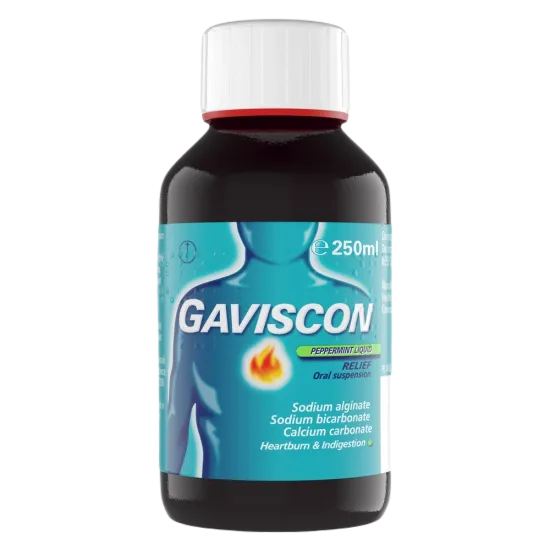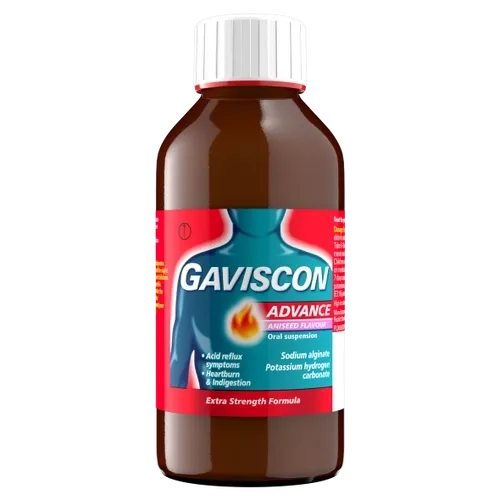Gaviscon Original Liquid
Forms a protective barrier
Relieves burning in the chest
Targets heartburn and indigestion instantly
Lasts up to 2x longer than antacids
View Gaviscon Original Liquid

Acid reflux is the name given to the burning sensation you get in your throat and chest. It’s caused by stomach acid refluxing upwards.
Acid reflux most commonly occurs just before bedtime, when you’re lying down, largely because it doesn't take as much force for stomach acid to travel up the chest and throat.
Stomach acid helps us break down food. But as we age, our bodies are less adapted to keeping the acid from travelling up the body. That’s why you’re more likely to experience it later in life, though it can be triggered in young people too.
Being overweight means there’s an increased pressure on your stomach, forcing open your oesophageal sphincter valve after eating.
But a large contributor? Stress, which can make symptoms worse. That’s because stress depletes our supply of prostaglandins, which protect our stomachs from acid. Try to get at least eight hours of restful sleep a night and cut out stressors from your life where possible.
We know how disruptive acid reflux can be, which is why our range is designed to help ease discomfort. Our products create a protective barrier that helps prevent acid - and other aggressors like pepsin and bile - from moving up the oesophagus.
The viscous formulation at the heart of our range (Gaviscon Original, Advance and Double Action) is sodium alginate, while these products also contain antacids, which turn excess acid into water and other neutral substances.
Learn more about the two main ways to improve acid reflux by reading about how lifestyle changes and medication can help.
Dosage: Take 10-20 ml (Gaviscon Liquid) or 5-10 ml (Gaviscon Advance) after meals and at bedtime. Consider one teaspoon to equal 5 ml.
All information presented is not meant to diagnose or prescribe. If symptoms are severe or prolonged you should consult a doctor or pharmacist. Always read the label.
Forms a protective barrier
Relieves burning in the chest
Targets heartburn and indigestion instantly
Lasts up to 2x longer than antacids
View Gaviscon Original Liquid
Suitable for pregnant mothers ‡
Extra strength formula
Targets heartburn and indigestion instantly
Long lasting relief of acid reflux (up to 4 hours)
View Gaviscon Advance Tablets
Dual-action formula
Targets heartburn and indigestion instantly
Gets to work in seconds
Lasts up to 4 hours
View Gaviscon Double Action Sachets
Repeatedly suffering from acid reflux? Don’t let it put your life on pause.
If your symptoms are more severe or more frequent, you may be advised to consider an acid-suppressing medication. Your pharmacist can advise on both forms of treatment and which would be best for you.
There are two groups of acid-suppressing medications available – proton pump inhibitors and histamine receptor blockers (H2 blockers). Both reduce the amount of acid made by the stomach. They do not start to work as quickly as antacids or alginates, but their effect can last longer.
Protective treatment for frequent sufferers
Treats heartburn and acid reflux
Lasts up to 24 hours
2-3 days of treatment might be required for symptom relief
View Guardium Tablets
Suitable for pregnant mothers ‡
Extra strength formula
Targets heartburn and indigestion instantly
Long lasting relief of acid reflux (up to 4 hours)
View Gaviscon Advance Liquid
.webp)
.webp)

.webp)
